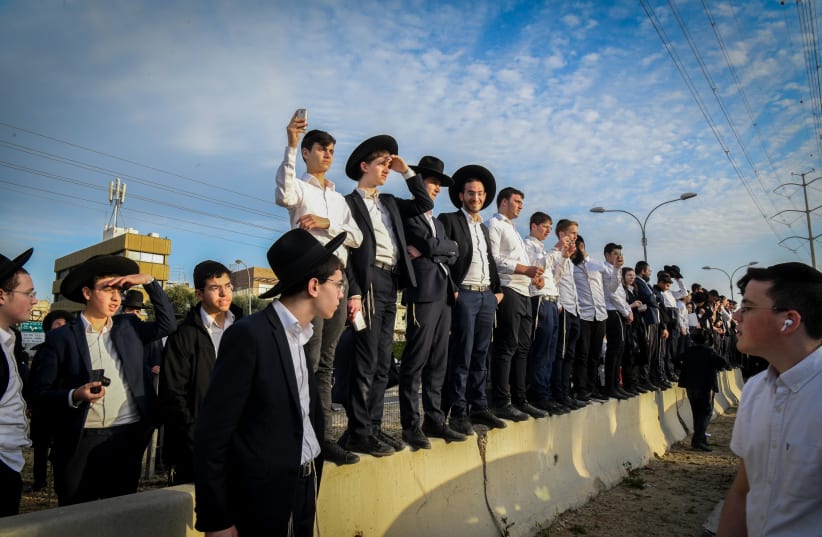As the new government takes shape, one of the thorniest yet most important issues that needs to be dealt with is the longstanding question of the exemption age for haredim (ultra-Orthodox) from mandatory military service.
As the situation currently stands, haredim can ask for an exemption at the age of 24 as long as they are registered as full-time yeshiva students. This gives rise to an impossible situation in which haredim postpone service until they are no longer required to do it; receive state funding for their yeshiva studies without contributing to the country in either military or civil national service; and do not participate in the workforce, since that would identify them as no longer being in full-time Torah studies.
It should be stated clearly that we are not belittling the value of studying Torah. It is important – particularly so in the one Jewish state. Nonetheless, it should be recognized that not everyone is cut out for yeshiva life, and the haredi community needs to be enabled and encouraged to participate in the economy and society, for everyone’s sake.
A good solution would be to lower the age of exemption for military service to 21. During the three years from 18 to 21, the state would fund their yeshiva studies, but at the end of that period, they would either need to join the army in one of the special frameworks adapted for religious soldiers; volunteer for civil national service, for example in hospitals, schools or charities; or start working – like the majority of the country’s citizens. Those who want to continue studying could do so, but not at the taxpayers’ expense.
It is ridiculous to expect those who serve in the IDF to continue to fund those who not only don’t serve but also who don’t work. And it is not sustainable.
Currently, haredim make up about 1.2 million of the country’s citizens, around 13% of the population. With a high birthrate in a community that places great value on having large families, the haredi sector is projected to continue to grow at a fast rate.
According to the Bank of Israel, approximately 75% of haredi women work, but only 50% of men are employed. This places a tremendous burden on the economy and creates a community of poverty.
The situation is an anomaly. For a start, in the Diaspora it is understood that the ultra-Orthodox are part of the workforce, and certainly there is no expectation for taxpayers to support their full-time studies instead of them working.
In addition, the large National-Religious sector, which places no less value on Torah study, has figured out a way to continue studying and fulfilling other religious requirements (prayer, kashrut and more) while serving in the IDF (often in combat roles) and then joining the workforce.
Original exemption
The original exemption stems from a decision by David Ben-Gurion to postpone the draft for yeshiva students who can be categorized as “Toratam omanutam” (their Torah studies is their occupation).
In the early days of the state, those people benefiting from the exemption numbered just a few hundred men. Today, tens of thousands of yeshiva students are being supported by the state while avoiding military service.
It is unlikely that the haredi sector will suddenly decide to enlist en masse at age 18 like the rest of their Jewish compatriots. Lowering the exemption age recognizes this fact.
The emphasis should now move over to getting the haredim to join the workforce. There are already special programs to help provide them with the skills they need and work environments that help them maintain their stringent religious lifestyle.
Those who place the highest value on Torah study must recognize that it does not need to come at the expense of IDF service.
Nevertheless, what is really important now is helping haredim find their place in the workforce, which would help ultra-Orthodox youth not only break out of a cycle of poverty but also contribute in a practical and financial way to the state and its success.
Lowering the draft exemption age to 21 could raise the value of Torah study and give the country’s economy a boost at the same time.

